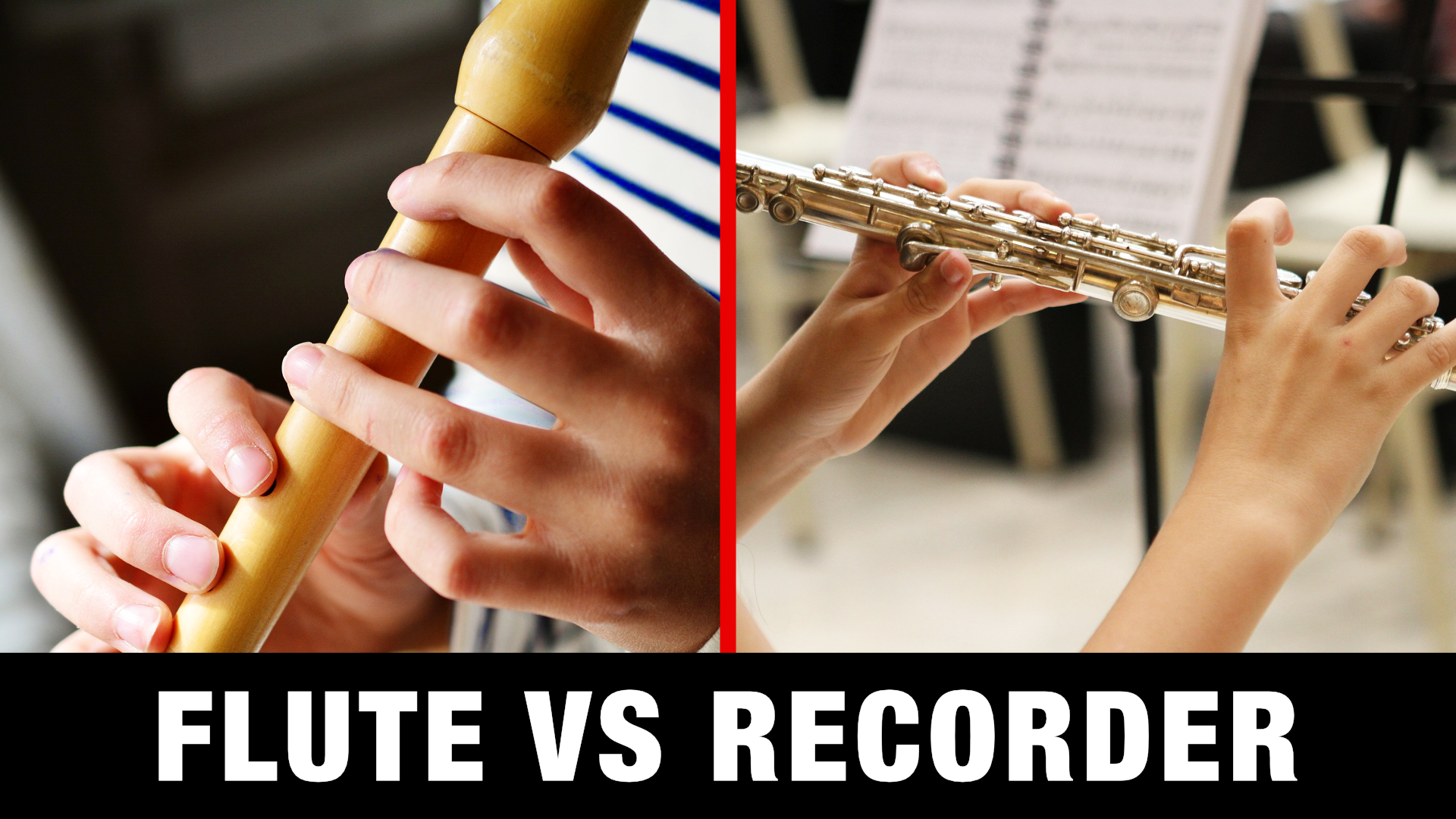 The flute family of instruments is the oldest melodic instrument in the history of mankind.
The flute family of instruments is the oldest melodic instrument in the history of mankind.
Flutes are what is called “wind instruments” since you play the instruments by blowing air into them.
And since you literally “breath life” into the instrument to play melodies and music, wind instruments feel very organic and life-like in their sound and tonal quality.
What is the Difference between a Flute and a Recorder?
Both the flute and recorder is part of the same instrument “family”, but each has its own sub-class because of how they are designed.
The main difference to a casual viewer is that you play the flute from the side, which is why it is called a side-blown flute or “transverse flute”.
The recorder is played from the end of the flute. However, the difference goes beyond the angle of the instrument when you play it.
The standard flute requires you to shape the air-stream and direction with your mouth and lips to create the sound and shape the tone.
This is much harder to learn, but it gives you much better performance control over things like: tone, pitch, dynamics etc.
The recorder on the other hand, is part of a sub class of overall “flute family” called “fipple flutes”. It can also be referred to as a “fixed edge flute”.
This means the air flow and direction is already fixed, so you don’t have to shape it with your lips. You only need to blow into the end piece of the recorder.
The downside is that you have less control over dynamics, tone and pitch on the recorder.
However, since the recorder have open holes, you get a lot of other expressive potential on things like glissandos, legatos, note bending etc.
Yes, there are open-hole concert flutes too, but they only have some holes open, and those holes are still on “keys”.
On a personal note, since I play both the recorder and concert flute, among many other wind instruments, is that they both have their strengths and weaknesses.
The recorder is however, a much easier instrument to start on, and then you can decide to pick up the flute later if you want to.
However, the recorder is by no means a “beginner only instrument”. When you learn to play it well, you can use it all its expressive potential to play and make some great music. I know I do! =)
So whatever you decide, these are the main differences between a flute and a recorder:
Flute vs Recorder (Main Differences)
- Flute (sideblown) vs Recorder (end-blown)
- Flute (requires embouchure) vs Recorder (fixed edge)
- Recorder (open holes) vs Flute (mainly keys)
- Recorder (easy to maintain) vs Flute (requires service)
- Flute is better for tone, pitch and dynamic control
- Recorder is better for legato and tone-bending

